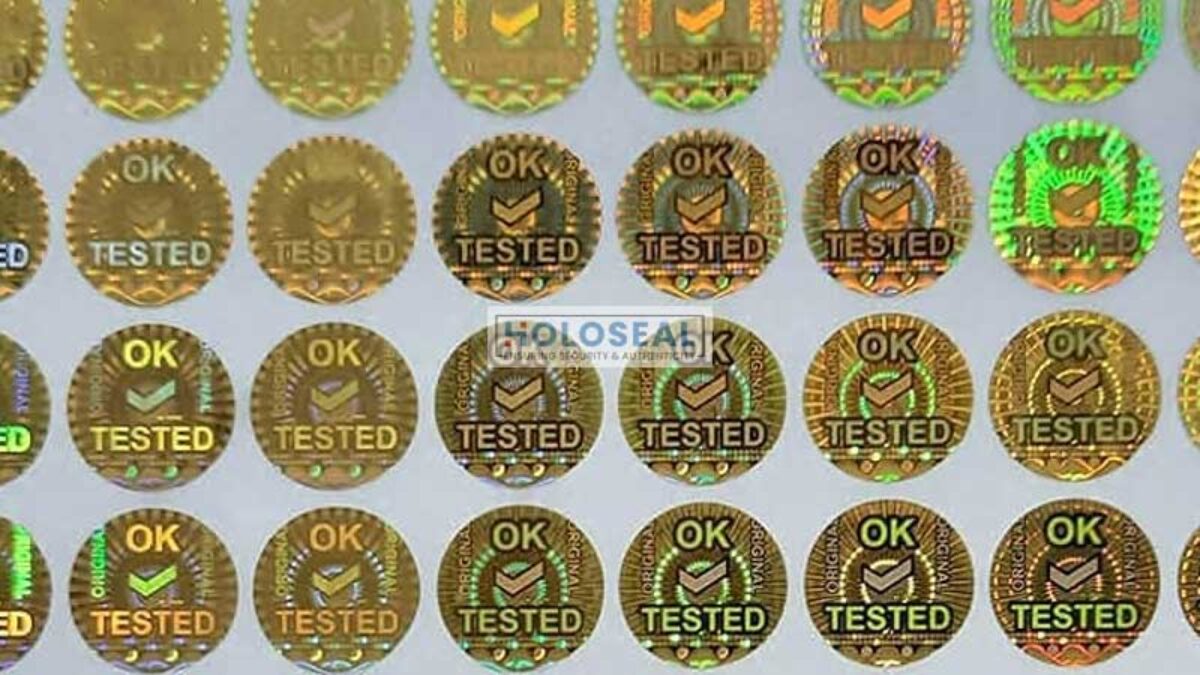In the complex landscape of commerce, ensuring the authenticity of products is paramount for both businesses and consumers. However, the persistent threat of counterfeit goods poses a significant challenge to the integrity of Indian brands. To address this issue, hologram labels have emerged as a vital defense, providing robust protection against forgery while enhancing consumer trust.
Hologram labels represent a convergence of advanced technology and innovative security measures. Featuring three-dimensional images, these holographic labels are extremely difficult to replicate accurately without sophisticated equipment and expertise. The intricate holographic patterns, coupled with dynamic visual effects, make them highly resistant to counterfeiting, acting as a strong deterrent against fraudulent activities.
Indian brands across diverse sectors, including pharmaceuticals, electronics, apparel, and FMCG (Fast Moving Consumer Goods), are increasingly adopting hologram labels to safeguard their products and intellectual property rights. Particularly in the pharmaceutical sector, holographic authentication has become essential in ensuring the authenticity and safety of medicines, thereby protecting consumer health.
Beyond their role in thwarting counterfeiters, hologram labels serve as a visible symbol of authenticity, instilling confidence in consumers and distinguishing genuine products from their counterfeit counterparts. By incorporating holographic labels into their packaging, Indian brands not only protect their products but also convey a commitment to quality and integrity, ultimately enhancing their brand reputation and fostering customer loyalty.
Moreover, hologram labels offer versatility, as they can be applied to various packaging formats and substrates without compromising aesthetics. This adaptability enables brands to implement robust anti-counterfeiting measures while maintaining the visual appeal of their products.
The adoption of hologram labels also aligns with regulatory efforts aimed at combating counterfeiting and protecting consumers. Government agencies and industry regulators in India have recognized the effectiveness of holographic technology in this regard, mandating its use in certain sectors to uphold legal requirements and contribute to broader efforts to safeguard public health and safety.
Furthermore, the rise of e-commerce platforms has heightened the need for stringent anti-counterfeiting measures. Hologram labels serve as a tangible verification tool for online shoppers, enabling them to authenticate products before making purchasing decisions. This transparency not only enhances consumer trust but also strengthens the credibility of Indian brands in the digital marketplace.
In summary, hologram labels play a pivotal role in safeguarding Indian brands against counterfeiting and forgery. Beyond their function as a security feature, holographic authentication symbolizes a commitment to quality, integrity, and consumer protection. As Indian brands navigate the competitive global marketplace, the adoption of hologram labels becomes not just a choice but a strategic necessity in preserving their reputation and fostering consumer trust.




